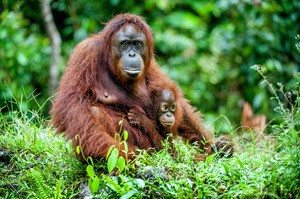Guest Editor
Sungwon Hong, PhD, Kyungpook National University, South Korea
Submission Status: Open | Submission Deadline: 25 November 2025


Sungwon Hong, PhD, Kyungpook National University, South Korea


Sungwon Hong, PhD, Kyungpook National University, South Korea


The decline of biodiversity has reached alarming levels, with numerous species facing extinction due to a combination of factors including habitat loss, climate change, and human encroachment. This Collection aims to address the pressing challenges of conservation for endangered species, focusing on the interplay between ecological dynamics and human influences. We invite researchers to contribute their findings on various aspects of endangered species, including the effects of habitat fragmentation, population bottlenecks, and the implications of genetic diversity in conservation efforts.
Understanding the dynamics surrounding endangered species is essential for informing effective conservation strategies and policy decisions. Recent advances in conservation genomics have provided insights into the genetic health of endangered populations, allowing for more targeted interventions. Additionally, the application of technology in wildlife monitoring and habitat restoration has shown promise in mitigating the impacts of human activities. Continued research is crucial to unravel the complexities of species decline and develop solutions to safeguard biodiversity.
By pursuing this line of research, we may witness significant advancements in our approaches to conservation. Future studies could lead to improved methods for restoring genetic diversity in endangered populations, thereby enhancing their resilience to environmental changes. Furthermore, interdisciplinary collaborations may yield comprehensive strategies that integrate ecological, genetic, and socio-economic factors, resulting in more sustainable conservation efforts.
Topics that are welcome include, but are not limited to, the following:
This Collection supports and amplifies research related to SDG 14: Life Below Water and SDG 15: Life on Land.
All manuscripts submitted to this journal, including those submitted to collections and special issues, are assessed in line with our editorial policies and the journal’s peer review process. Reviewers and editors are required to declare competing interests and can be excluded from the peer review process if a competing interest exists.
Image credit: © Uryadnikov Sergey / Stock.adobe.com
There are currently no articles in this collection.
This Collection welcomes submission of original Research Articles. Should you wish to submit a different article type, please read our submission guidelines to confirm that type is accepted by the journal. Articles for this Collection should be submitted via our submission system, Snapp. During the submission process you will be asked whether you are submitting to a Collection, please select "Endangered species and conservation challenges" from the dropdown menu.
All manuscripts submitted to this journal, including those submitted to collections and special issues, are assessed in line with our editorial policies and the journal’s peer review process. Reviewers and editors are required to declare competing interests and can be excluded from the peer review process if a competing interest exists.